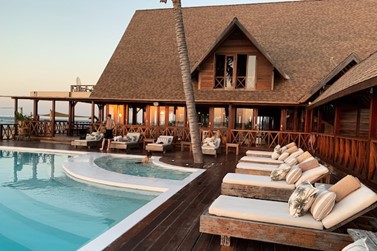Hotels are a great place to rest, relax, and enjoy its amenities. But ever wondered why hotels remain convenient and appealing to stay in despite their risks for accidents and emergencies?
That’s because hotels have emergency prevention and disaster preparedness measures.
But what are these incidents and calamities that hotels prevent and be ready for?
In this article, Hailey Toch discusses resilience and preparedness in the hospitality industry.
Disaster Planning
Like all businesses, hotels must prepare for natural disasters – storms, earthquakes, flooding, etc. However, hotels are more conscious of these occurrences as their establishments house many guests.
To prevent putting tourists and vacationers at risk of experiencing these, hotels develop crisis management and planning by implementing DPL (Disaster Prevention Literacy).
But what is DPL?
Hotels utilize DPL by educating the employees on what to do should disaster strike. They typically:
- Educate the staff on how to evacuate the guests safely.
- Conduct fire or earthquake drills regularly.
- Notify the guests about the probability of a disaster.
- Keep track of the building to see which parts are prone to damages that can worsen should a disaster strike.
That said, hotels prioritize the safety of their guests – but that also extends to their health.
Health Management
Medical emergencies can happen anytime. However, when it occurs in a hotel, it’s the hotelier’s responsibility to provide first aid to the guests. To do that, hotels do the following:
- Have a first aid kit and necessary medical supplies.
- Make a medical response team.
- Tie up with hospitals for quicker response to medical emergencies.
Furthermore, at the height of the COVID-19 pandemic, hotels implemented protocols to prevent guests from contracting the virus – they regularly sanitized the establishment, asked guests to wear face masks, and maintained social distancing.
However, since hotels are big establishments with plenty of people staying, the establishment is prone to terrorist attacks.
Safety Management
Terrorists typically target hotels because putting civilians at risk can strike fear and alert people and the government. Fortunately, the hotel industry prepared its staff and establishments for such incidents.
According to a journal by the University of Massachusetts Amherst, the hospitality industry reduces the risk of injuries and fatalities (caused by terrorist attacks) by:
- Monitoring access points.
- Installing surveillance cameras.
- Installing sensors and detectors.
- Practicing evacuation plans.
But are these measures necessary?

Crisis Control and Disaster Prevention: Keeping Hotel Guests Unharmed
One notable example of the benefits of implementing, planning, and preventing guest injuries was the March 11, 2011, earthquake and tsunami in Japan. That day, 69,000 people went to Tokyo Disney Resort.
When the disaster struck, Tokyo Disney Resort staff quickly practiced the disaster management measures they were trained to do. Despite the damage to the soil of the establishment, no visitor was injured or died.
However, due to Tokyo Disney Resort’s unstable ground, they had to close down for several weeks, resulting in lost profits of $400 million – but to them, attendees’ safety was more important than that.
In Conclusion
Hotels provide a comfortable place to stay – and incredible amenities to use – but they also provide safety by practicing disaster management and crisis prevention.
When staying in a hotel, ask the staff about their safety measures, evacuation plans, and available medical supplies – they must have those, as it’s proof that hotels are ready for manmade and natural disasters.
